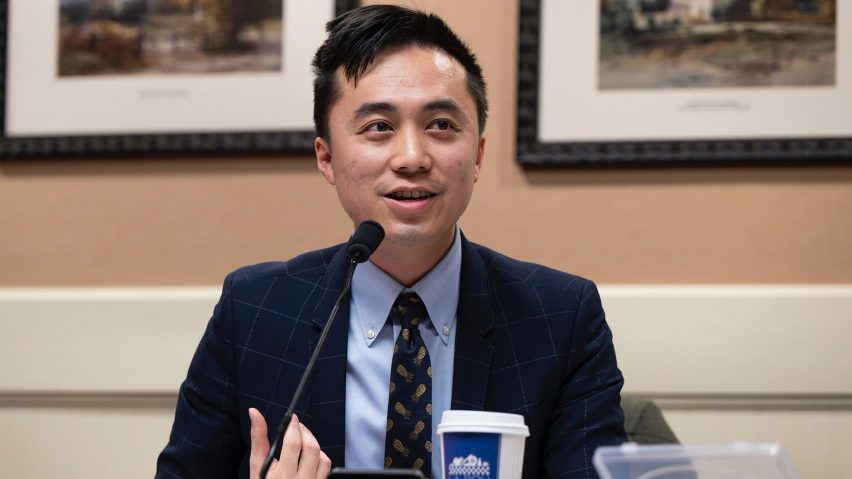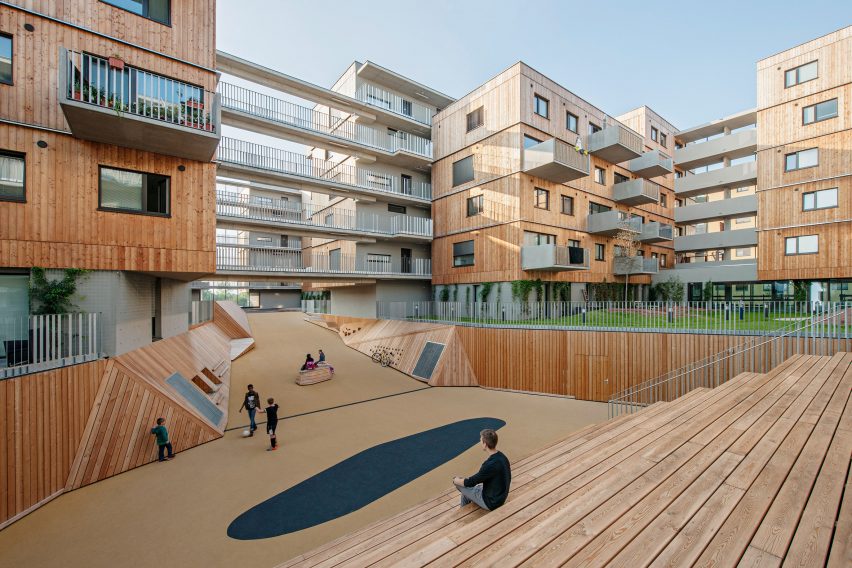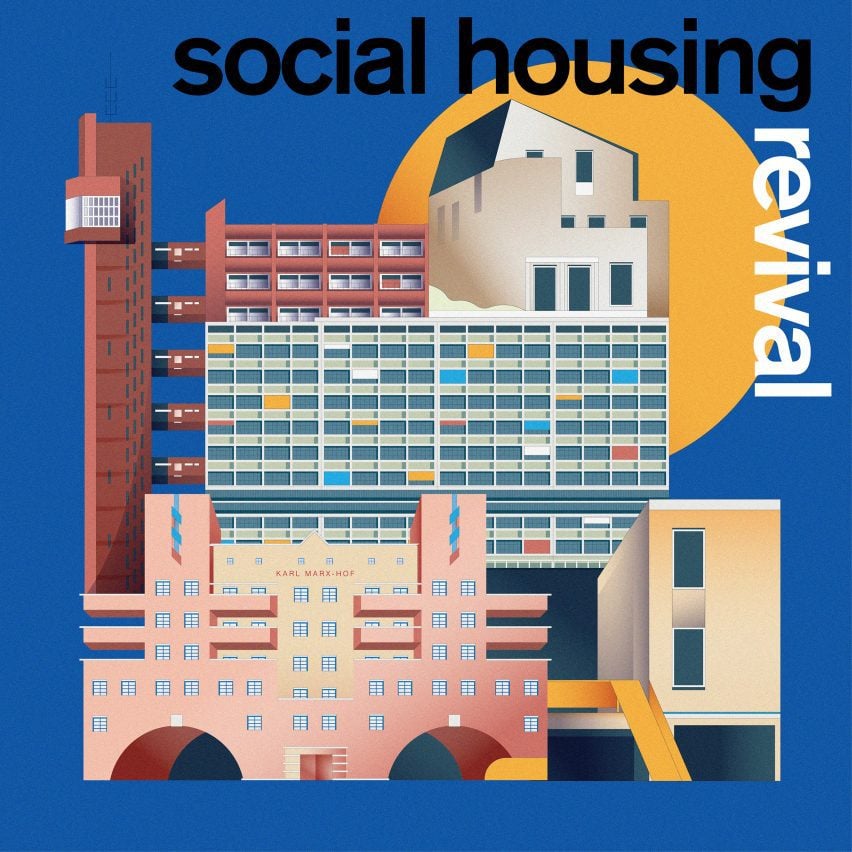
Social housing is America's "missing tool" to solve housing crisis says Alex Lee
Public housing is an essential part of the solution to the housing crisis in the US, California politician Alex Lee tells Dezeen in this interview conducted as part of our Social Housing Revival series.
California State Assembly member Lee is one of a small number of voices leading calls for a new social-housing programme to alleviate America's severe housing-affordability problems.
US "allergy to government programmes" blocks social housing
"I think, broadly speaking, the world is suffering a crisis of affordable housing," Lee told Dezeen.
"California is probably the epicentre of the American housing crisis that is sweeping the entire nation – but uniquely in America and in California we lack one of the very specific tools to address a housing crisis," he said.
"That is through social housing, through a public developer, through government intervention and creating more affordable housing options."
Lee, a Democrat whose district covers the Bay Area cities of Milpitas and Fremont, wants to see California copy governments in Europe and Asia in directly funding the development of below-market housing at scale.
"What we're really talking about is public sector-led development that is housing for everyone," he said.
"It remains one of these very pivotal strategies where we can really leverage our state resources to directly house a lot of people, but yet we still do not have that right now," he added.
"So that's why I think it's our missing tool in the toolbox to solve our housing crisis."
This is not currently a mainstream political view in the US, where very little public housing has been built since the 1980s, while hundreds of thousands of homes have been demolished.
There are currently approximately 970,000 units of public housing nationwide – around 0.7 per cent of the country's total housing stock, compared to around 17 per cent in the UK – and the concept remains a fringe element of the housing-policy debate.
"I would attribute that to a long-standing tradition of being allergic to government programmes," said Lee. "Our country for a long time has very much recoiled at anything that remotely sounds socialist."
"This idea that the government shouldn't be doing certain things is one of these weird, subconscious beliefs that a lot of Americans have," he continued.
"If we tried to create public libraries, public schools, and social security today, it would probably be labelled as some great Marxist scheme."
"More people are coming around to the idea"
Nevertheless, Lee believes that support for the idea of a government-led social housing programme is growing. Fellow left-wing Democrats Alexandria Ocasio-Cortez and Ilhan Omar have been making similar arguments at a national level.
"I think more people are coming around to the idea that the current system of housing we have is fundamentally broken," Lee said.
"Anyone who says that just doing a little bit of that and a little bit of this fix to it is, I think, completely wrong."
Lee is doubtful that it will be possible to increase housing supply sufficiently to improve affordability through the market alone – where the profit motive means there is little incentive to bring rents and house prices down.
"The free market is working as intended today, where sky-high rent prices and housing prices are driving people away from their home communities – that's the market at work," he said.
"Without an intervention of the public sector, which we want through social housing, there cannot be a solution entirely to the housing crisis."

An alternative solution that currently has stronger political support is expanding the availability of housing vouchers, which subsidise qualifying low-income families to rent a private home.
But Lee is equally sceptical about this approach.
"The housing voucher system is the way in which America perverted and destroyed its public-housing system," he argued.
"In the end it's just a voucher for the landlord. There's a lot of things in America where we take taxpayer money and just give it to someone more powerful – in this sense landlords – and it doesn't work."
"Having social housing as an actual actor, a provider of housing, is way better."
Lee is currently chair of the California State Assembly's select committee on social housing, as well as chair of the committee on human services.
For the past four years in a row, he has tabled legislation that would establish a California Housing Authority to begin developing affordable homes.
Last year the bill gained enough support among assembly members to make it to the state governor's desk where it was vetoed – but last month, Lee again formally proposed The Social Housing Act. Similar proposals have recently been put forward in New York.
Unlike America's public-housing programmes of the past that were for the very poorest, Lee wants to see homes built for people on a range of incomes.
"The idea is the government is in the driver's seat and the housing itself is intended for as wide an audience of the population as possible," he explained.
Public housing "sabotaged" in US
He references Vienna, where nearly 60 per cent of the population lives in some form of social housing.
"With [US] public housing we've very much intended it only for poor people and we kind of trap them in these places without proper investment or mixed-income communities," said Lee.
Lee blames that approach, combined with the policies of successive conservative politicians, for the social problems that have often blighted public housing in America and remain a factor in its unpopularity.
"Public housing has a stigma to it in this country, it's undeniable," he said. "The reason public housing has so much stigma isn't because of public housing in and of itself, it's the things that a lot of politicians did to it, and sabotaged it."
"If you look at the history of public housing in America, it was undermined by the conservatives and, frankly, by racist people, from the very beginning, and that only manifested over time where new sources of funding for maintenance and all that stuff was disinvested."
"America has a very dark history of anti-collective solutions and government solutions, and also [being] very anti-people of colour."
Architecture has an important role to play in overcoming negative sentiment around social housing, Lee argued.
"Oftentimes people will be anxious about a lot of things, but really it comes down to how tall, how ugly, how big the building ultimately is," he said.
"So I think the physical expression of a building often comforts the community a lot more than they're willing to consciously admit," he continued.
"I've seen a lot of times where Americans have a deep-seated stigma or mindset when it comes to public housing, and they see the Singaporean and Viennese examples – and even some modern American examples – of affordable housing, and they typically change their mind."
The main photo is courtesy of the California State Assembly.

Social Housing Revival
This article is part of Dezeen's Social Housing Revival series exploring the new wave of quality social housing being built around the world, and asking whether a return to social house-building at scale can help solve affordability issues and homelessness in our major cities.